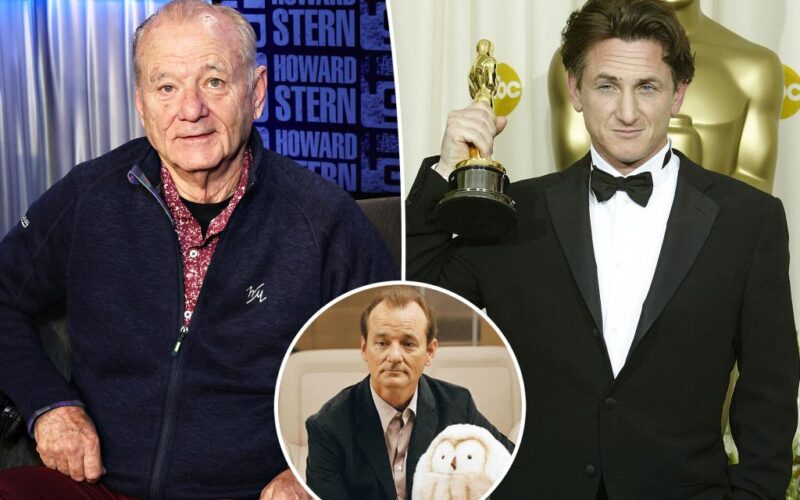Not even Bill Murray can win them all.
The “Lost in Translation” actor, 74, has admitted that he was “surprised” he lost the Academy Award for Best Actor to Sean Penn at the 2004 Oscars.
Murray opened up about his defeat on Tuesday during an interview with Howard Stern for SiriusXM’s “The Howard Stern Show.”
“It was sort of surprising. I won every other prize for ‘Lost in Translation,’ so I just sort of thought I was gonna win, ’cause I had won everything,” Murray recalled.
“Every single one. And then I didn’t win that one,” he added. “So I was like, ‘Well.’”
Murray was an awards darling in 2004 for his performance as a fading movie star in Sofia Coppola’s “Lost in Translation.” He won a Golden Globe Award, a BAFTA Award and an Independent Spirit Award, and was considered the frontrunner to win Best Actor at the 76th Academy Awards.
However, Penn, 64, beat Murray for his role in Clint Eastwood’s neo-noir mystery “Mystic River.” The other actors nominated in the category were Johnny Depp for “Pirates of the Caribbean,” Ben Kingsley for “House of Sand and Fog” and Jude Law for “Cold Mountain.”
Despite the crushing loss, Murray said he found a silver lining in the outcome.
“It was kind of good. I realized that I had actually gotten sort of infected by wanting to win it,” he explained. “That I had contracted a low-grade virus of the desire for more. I had it for about six months. It had to wear off.”
Murray added, “So I did learn a lesson from it that if I had won, I might not have ever seen.”
“Lost in Translation” was also nominated for Best Picture and Best Director and won for Best Original Screenplay, giving Coppola, 53, her first, and still her only, Oscar win.
During a recent appearance on “The Drew Barrymore Show,” Murray reflected on making the film with Coppola and co-star Scarlett Johansson.
“Well there was a girl, she was a teenager back then her name was Scarlett Johansson back then,” the comedian said. “She was only 17 when she made that movie, 17 years old and it was beautiful to make the movie with the two of them.”
Murray also looked back on the infamous whispering scene at the end of the film, calling it “an inspired moment.”
“That happened in the moment, it happened in the moment,” Murray shared. “That was a moment of seeing, ‘This is going to happen and it’s going to be even better because we’re never going to know.’”








